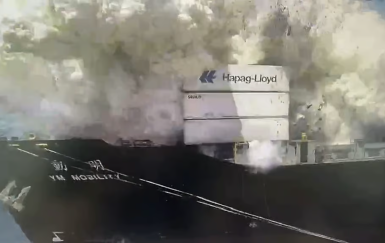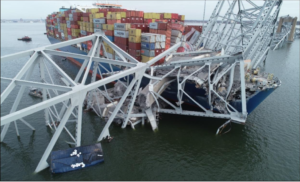
Debris in an engine’s lube oil system led to a diesel engine failure and an engine room fire aboard a passenger vessel docked in Portland, Maine, the National Transportation Safety Board (NTSB) said. The passenger vessel Ocean Navigator was moored at the Ocean Gateway Terminal on Oct. 18, 2023, when the no. 2 auxiliary diesel generator engine suffered a catastrophic mechanical failure that seriously injured one crewmember and resulted in an engine-room fire. Crewmembers secured ventilation to the engine room, and the fire self-extinguished. Continue reading “NTSB report on Ocean Navigator engine failure”
 The China Maritime Safety Administration (
The China Maritime Safety Administration ( The Bureau of Safety and Environmental Enforcement (
The Bureau of Safety and Environmental Enforcement ( The US National Transportation Safety Board (
The US National Transportation Safety Board (
 The Nordic Association of Marine Insurers (Cefor) has released its 2024 hull trends from the Nordic Marine Insurance Statistics (
The Nordic Association of Marine Insurers (Cefor) has released its 2024 hull trends from the Nordic Marine Insurance Statistics (
 The UK Marine Accident Investigation Branch (
The UK Marine Accident Investigation Branch (


 Germany’s Federal Bureau of Maritime Casualty Investigation (
Germany’s Federal Bureau of Maritime Casualty Investigation (